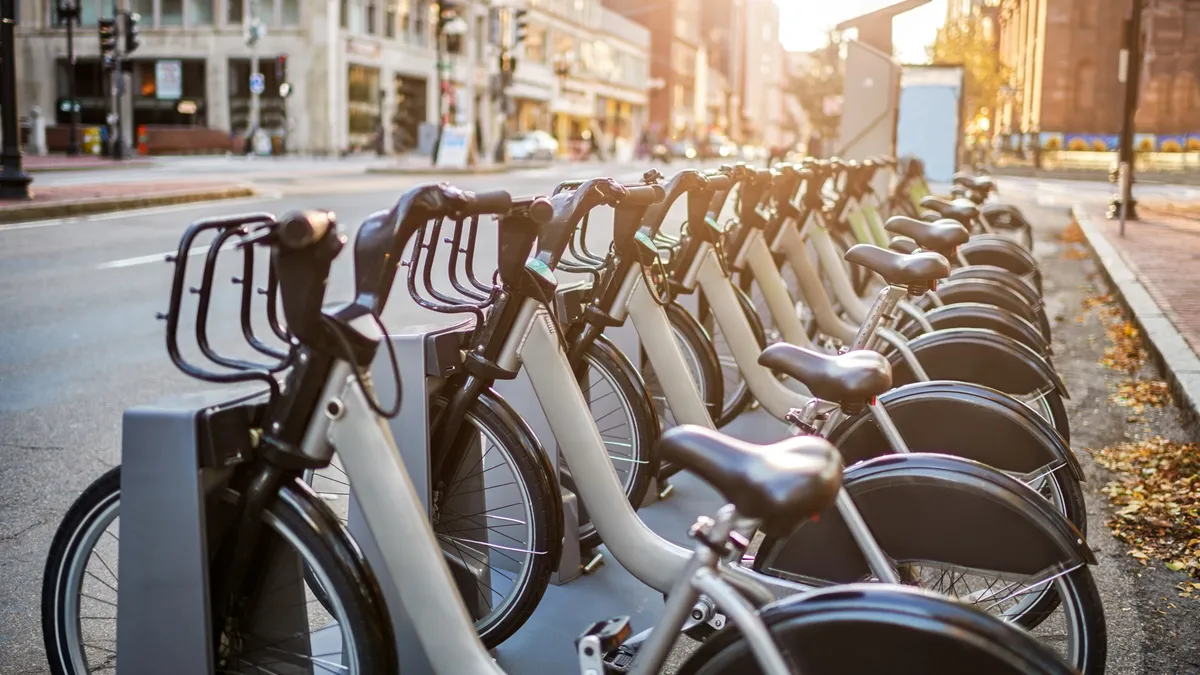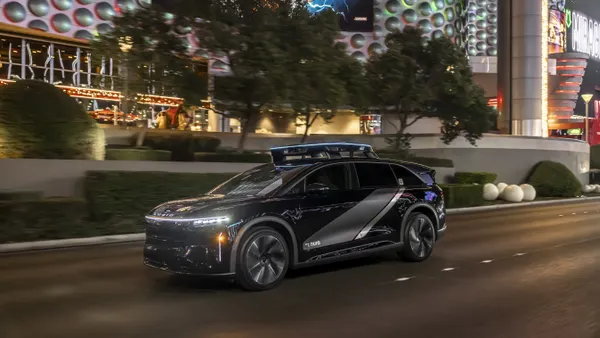Dive Brief:
-
Phoenix’s shared micromobility program will continue beyond its long-standing pilot program, according to a city press release Friday.
-
Micromobility service operators Lime and Spin will rent electric scooters and bikes and traditional pedal bikes in Phoenix. In December, the city council approved a measure that made Lime and Spin the city’s official shared micromobility vendors following the end of a micromobility pilot program that began in September 2019.
-
Mayor Kate Gallego said in an email that “alternate forms of transportation” are a “high priority” because “micromobility, combined with mass transit, offers equity to those who don’t drive or don’t own a car.”
Dive Insight:
Some local governments are permanently integrating shared micromobility into their regional transportation systems due to growing concern over economic and social inequality, human-caused climate change and an influx of federal funding.
Shared micromobility “gives every resident a menu of ways to get where they need to be while reducing emissions and mitigating the effects of climate change,” Gallego said in an email.
The press release added that the program would help the city deal with the large number of visitors expected to attend the Super Bowl in Glendale, Arizona, a Phoenix suburb, in February. Downtown Phoenix will host activities related to the game.
Under the December agreement, Lime and Spin can each operate 1,500 vehicles within a specified area, including at least 20% e-bikes and traditional pedal bikes. The public may rent them from 5 a.m. to midnight daily.
According to a study published in October by researchers at the Georgia Institute of Technology, time restrictions on shared micromobility vehicles can increase traffic congestion and emissions. Some cities, including Atlanta, have banned the nighttime use of shared micromobility over public safety concerns.
In addition to offering more options for people with disabilities, Lime and Spin will offer lower rates for people with low incomes or receiving government support.
The city will also require Lime and Spin to put 30% of their fleets in “equity zones” that lack transportation and economic opportunities due to “historical disinvestment,” the press release said. Trips starting in equity zones will receive discounts automatically.
Bird, which also participated in Phoenix’s micromobility pilot program, was not part of the December agreement.
Micromobility service companies experienced a rocky recovery in 2022, curbing operations and laying off workers in the face of economic headwinds, despite growing ridership after pandemic-related declines. Researchers and transportation professionals say that micromobility will continue to face financial concerns, but improved accessibility and local investments in micromobility infrastructure may support its long-term growth.











